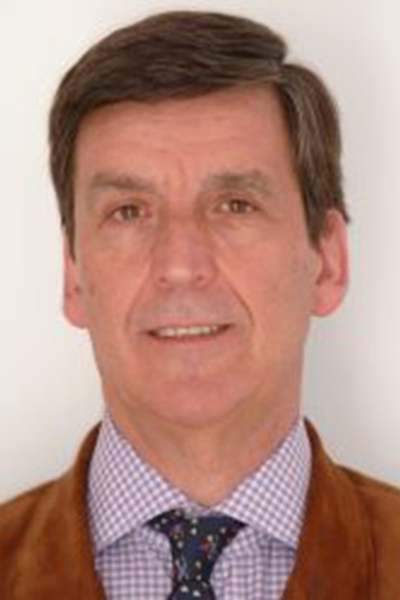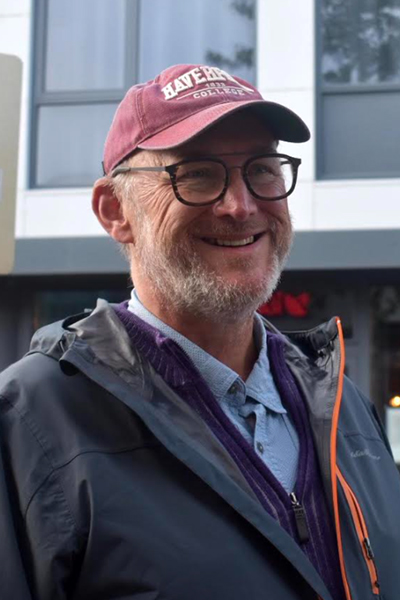
Is the Haruv Chair for the study of Child Maltreatment at the Hebrew University of Jerusalem and a Prof. of Social Work. Prof. Ben-Arieh is also the director of the Haruv Institute. He served for 20 years as the associate director of Israel’s National Council for the Child. Since 1990 and until 2011 he has been the founding editor-in-chief of the annual “State of the Child in Israel”. Asher has published extensively on children’s well-being, child maltreatment and indicators of children well-being. Prof. Ben-Arieh is the founding editor-in-chief of the Child Indicators Research journal and the Child Well-Being: Indicators and research book series. Ben-Arieh is one of the leading international experts on social indicators, particularly as they relate to child well-being. He initiated and coordinated the International Project “Measuring and Monitoring Children Well-Being”, was among the founding members of the ISCI and elected to be its first co-chair. Currently, Prof. Ben-Arieh is one of the PI’s of the multi-national, multi-million International Study of Children’s Well-being (ISCWeB) research project. Born in Jerusalem, he is married and has three children.

Professor of Social Psychology and Emeritus Professor at the University of Girona. He collaborate with the ERIDIQV group, committed to the Quality of Life Research Institute of the University of Girona. Member of the Standing Committee of the ISCI and of the Doctorate Program in Education and Society of the Andrés Bello University, Chile. Honorary member of Children’s Sociology Group Association. Awarded with the Distinguished Fellow Award from the International Society for Quality of Life Studies, in 2014. And also with the Award in Honour of Alfred J. Kahn and Sheila B. Kamerman “in recognition of his outstanding contributions to the field of research on childhood indicators from an international perspective”, by the ISCI in its 6th International Conference held in 2017. He’s one of the researchers coordinating the Children’s Worlds project, which has collected data on more than 100,000 children in 35 countries. Author of 22 books, editor or co-editor of another 8, of more than 100 book chapters and of more than 100 articles in international scientific journals. One of the most prominent was the co-edition with 3 other authors, of the Handbook of Child Well-Being published by Springer in 2013.

Is a Chapin Hall Senior Research Fellow with more than 35 years’ experience in research focused on improving the available data and evidence on services to children and families, particularly those who require specialized services related to maltreatment, disability, poverty, or violence. Dr. Goerge leads Chapin Hall’s Integrated Database on Child and Family Programs in Illinois, which links the administrative data on social service receipt, education, criminal and juvenile justice, employment, and early childhood programs to provide a comprehensive picture of child and family use of publicly provided or publicly financed service programs. His work provides high-quality information to policymakers to improve the programs serving children and their families. He is a member of the U.S. Committee on National Statistics (CNStat). He is also a Senior Fellow at the University of Chicago Harris School of Public Policy. He is also co-chair and cofounder of the International Society for Child Indicators (ISCI).

Associate Professor of the Faculty of Psychology, Universidad del Desarrollo. Doctor in Social Sciences and Education from the University of Girona (Spain). Master in Psychosocial Intervention from the University of Barcelona (Spain). Psychologist from the Pontificia Universidad Católica de Chile. Researcher at the Centre for Studies in Welfare and Social Coexistence (CEBCS) of the Faculty of Psychology, Universidad del Desarrollo. Member of the Faculty of the Doctorate in Developmental Sciences and Psychopathology (DCDP) of the Faculty of Psychology of the Universidad del Desarrollo. His research work is developed in two main lines. The first addresses issues related to community psychology and the development of social policy interventions, with special emphasis on disciplinary knowledge transfer processes for policy formulation and implementation. On the other hand, he develops studies on subjective well-being in childhood and adolescence with special emphasis on contextual processes (school, neighbourhood and community, programs and social services) that affect children and adolescents.

Sociologist, PhD from the Instituto Universitário de Pesquisa do Rio de Janeiro (IUPERJ), with a degree in Psychology from the University of Santa Úrsula, a master’s degree in Social Service from the University of Chicago (School of Social Service Administration). She is a professor in the Department of Social Service at the Pontifícia Universidade Católica do Rio de Janeiro (Undergraduate and Graduate Studies) and director of the International Centre for Childhood Studies and Research (CIESPI) in partnership with PUC-Rio. At the international level, she was President of the Childwatch International Research Network, 2002-2009 and was a visiting professor at the University of Notre Dame, at the Institute for International Studies, with a focus on Latin American Studies in 2006. Irene Rizzini received the Guggenheim award for 2008- 2009 and The Global Citizens Award (2016). She was a visiting professor (Leverhulme professorship grant) at the University of Edinburgh, Scotland, from August to November 2017, associated with the Center for Research on Families and Relationships (2017). She actively participates in several editorial boards of scientific journals and coordinates several scientific cooperation research projects with universities on all continents, with publications at national and international levels.

Mónica Ruiz Casares (Canada), Associate Professor of Psychiatry and Associate Member of the School of Social Work, the Centre for Research on Children and Families, and the Institute for Health and Social Policy, McGill University. She is also Researcher at the SHERPA University Institute in Montreal and a Credentialed Evaluator with the Canadian Evaluation Society. Dr. Ruiz-Casares holds a PhD in Policy Analysis and Management/Human Services Studies and a MSc in Program Planning & Evaluation from Cornell University and Postdoctoral training in Transcultural Child Psychiatry at McGill University, where she was a Tomlinson and FRQS Scholar. Her research program focuses on the wellbeing and protection of orphan, separated, and unsupervised children and adolescents across cultures; ethics in global research with children; and policy and program evaluation. An important part of her work concentrates on the wellbeing of children without parental care, particularly among migrant, refugee, and ethno-culturally diverse communities. This includes the first study on child-headed households and child depression in Namibia; a Child Protection Knowledge, Attitudes, and Practices study in Liberia; a study on alternative care in Lao P.D.R.; and several studies on children home alone in Canada and internationally. Dr. Ruiz-Casares served as an advisor to the international Ethical Research Involving Children (ERIC) project and has ongoing, international ethics studies involving young people. Her research privileges the voices of children, and is inspired by action research principles.

Professor for Social Pedagogy and Family Studies at Goethe-University Frankfurt. Since 2016 she is the chairwoman of the national Independent Inquiry on Child Sexual Abuse. She is one of the PIs of the global study “Children’s Worlds”.
Resident at the Forschungskolleg Humanwissenschaften: 2020-2021, Research topic at the Forschungskolleg Humanwissenschaften: Violence in generational systems. Experiences, thematic approaches and processing.
Her research interests: Empirical studies on Trust, Vulnerability and Violence in Childhood. Insights from coming to terms with child sexual abuse for childhood research.
Os cookies funcionais ajudam a realizar certas funcionalidades, como compartilhar o conteúdo do site em plataformas de mídia social, coletar feedbacks e outros recursos de terceiros.
Os cookies de desempenho são usados para entender e analisar os principais índices de desempenho do site, o que ajuda a fornecer uma melhor experiência do usuário para os visitantes.
Cookies analíticos são usados para entender como os visitantes interagem com o site. Esses cookies ajudam a fornecer informações sobre as métricas do número de visitantes, taxa de rejeição, origem do tráfego, etc.
Os cookies de publicidade são usados para fornecer aos visitantes anúncios e campanhas de marketing relevantes. Esses cookies rastreiam visitantes em sites e coletam informações para fornecer anúncios personalizados.
Outros cookies não categorizados são aqueles que estão sendo analisados e ainda não foram classificados em uma categoria.
Os cookies necessários são absolutamente essenciais para o funcionamento adequado do site. Esses cookies garantem funcionalidades básicas e recursos de segurança do site, de forma anônima.